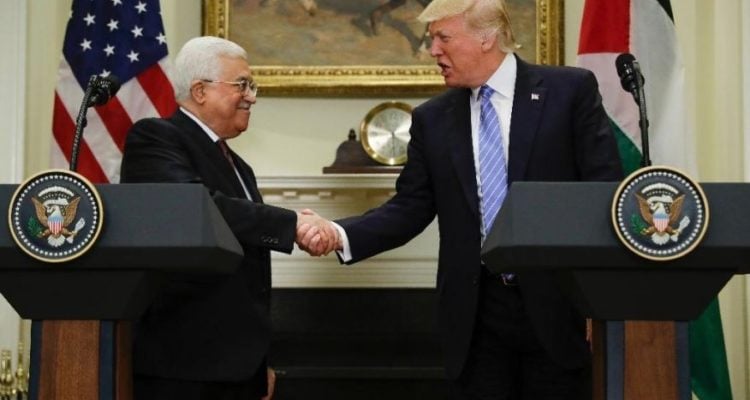Jewish Home minister Uri Ariel warns Netanyahu he will step down if rumors reported in Israeli media, saying the PM has sanctioned a peace framework that would include land swaps and US recognition of a Palestinian state, are confirmed; ‘We will not remain in a government that recognizes a Palestinian state;’ PMO dismisses reports as ‘not accurate.’
By: Jack Ben-David, World Israel News
Agriculture Minister Uri Ariel (Jewish Home Party) threatened to quit the government on Saturday night in protest against rumors that Prime Minister Benjamin Netanyahu has accepted a US-backed peace initiative that would include President Donald Trump’s recognition of a Palestinian state.
Issuing a statement after ‘Hadashot’ newspaper revealed the key tenet of the rumored plan, Ariel, whose party vehemently opposes the notion of a Palestinian state, stated that his faction “will not remain in a government that recognizes a Palestinian state.”
While Ariel’s threats, if implemented, would not suffice to topple the government, despite the coalition’s slender majority in the Knesset, the minister insisted that other lawmakers hailing from the nationalist camp would reject any such proposal.
“There are also Knesset members in the Likud and the Jewish Home who have made clear that they will not agree to transfer swathes of land to the Palestinian Authority,” he said.
Ariel also garnered the backing from MKs such as Yoav Kisch from Netanyahu’s Likud party, along with MK Bezalel Smotrich (Jewish Home), who were unequivocal about their opposition to the “spirit of the new Oslo accords” which appear to delineate the prospect of land for peace––a prospect many Israelis believe to be a proven failure.
“Under no circumstances will we agree to the establishment of a Palestinian state on this side of the Jordan river,” they said in a statement, warning that “new Oslo accords will be received with strong opposition.”
The Hadashot News report notwithstanding, the Trump administration has remained elusive on both the timing and content of peace negotiations, and the conflicting reports of other news sources have contributed to a significant degree of ambiguity surrounding Trump’s plan.
Earlier this month, the New York Times reported that the White House was gearing up to kick-start a new peace push, with rumors circulating that plans for settlements and eastern Jerusalem would not necessarily differ from those formulated by Trump’s predecessors.
“We have spent a lot of time listening to and engaging with the Israelis, Palestinians and key regional leaders over the past few months to help reach an enduring peace deal,” said Trump’s special Middle East advisor Jason Greenblatt, who has been engaged in talks between Israeli and Palestinian officials.
“We are not going to put an artificial timeline on the development or presentation of any specific ideas and will also never impose a deal. Our goal is to facilitate, not dictate, a lasting peace agreement to improve the lives of Israelis and Palestinians and security across the region.”
According to the Hadashot News report however, the White House would not insist on the evacuation of existing Jewish communities in the West Bank, but the plan would entail land swaps.
However, the final accord would “not necessarily” be based on pre-1967 border––a cornerstone of past US policy.
Netanyahu’s demand that Israeli forces remain on the Jordanian border was reported to have been given the green light by Washington as part of the peace framework.
Despite the report, Netanyahu’s office categorically dismissed it as “not accurate,” adding that Israel’s “security needs and national needs of the State of Israel” would determine whether or not Jerusalem would countenance any peace plan.





